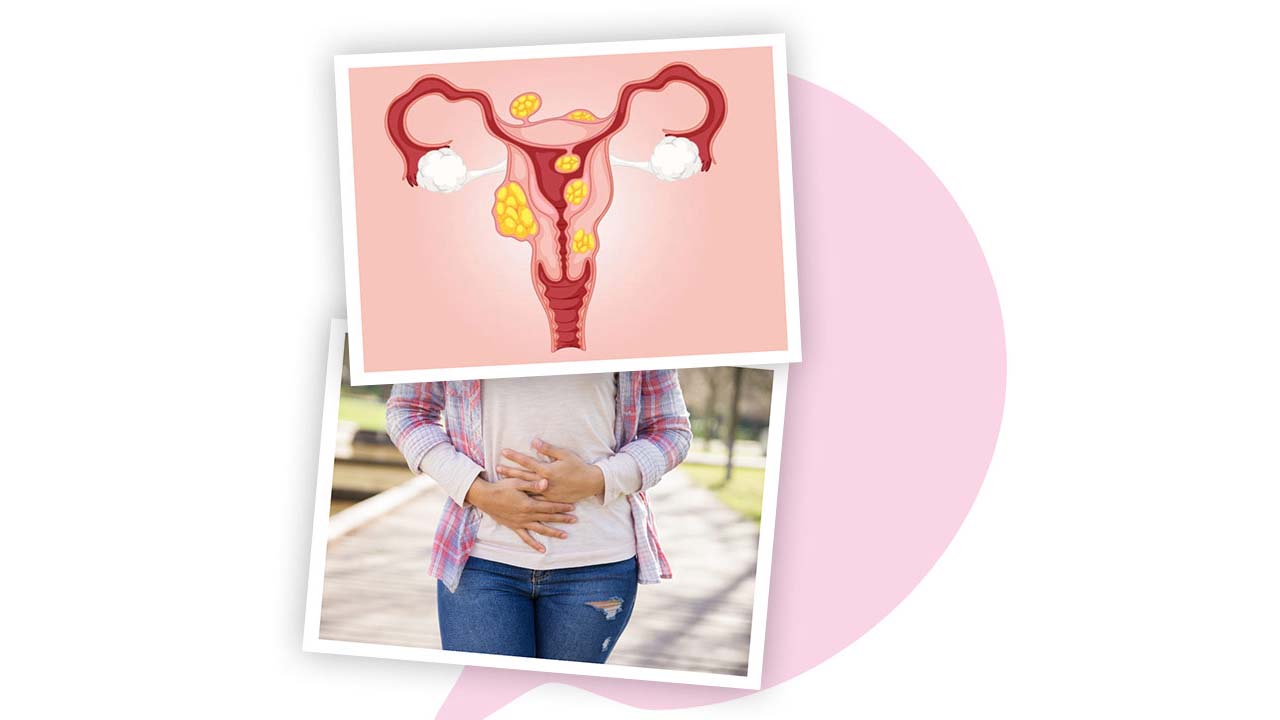Uterine fibroids are getting common in reproductive-age women. According to a study, around 25-50% of women in India go through this problem once in their lifetime. Though many of them don’t cause harm to the body yet some may cause intense/unbearable pain. They are mostly non-cancerous but, in some cases, they may convert into malignant.
Fibroids can develop in the form of one nodule or clusters. They can change the size, shape, and volume of the uterus. Fibroid clusters can vary in size from 1 mm to 20 cm (8 inches) in diameter or much bigger. The symptoms of uterine fibroids depend on their shape and size. Large fibroids can cause intense pain and heavy bleeding.
The reason behind this is not clear yet. Most fibroids occur during the reproductive age group. Hormonal changes, family history, pregnancy, and unhealthy lifestyle, there can be many such reasons.
Smaller fibroids are generally asymptomatic. They hardly show any symptoms. Most of the time, they are accidentally found during USG.
Some common symptoms are
- Heavy bleeding
- Periods that last for longer days
- Intense lower abdominal pain
- Pain during sexual intercourse
- A feeling of a lump in the lower abdomen
- Infertility
- Pain in the lower back
- Constipation
- Anemia
- Trouble in urinating
- Chronic vaginal discharge
Smaller fibroids can be easily treated by medicines but large fibroids don’t respond to medicines, they require surgery.
Lifestyle can help prevent fibroids
Physical activity – Exercise can reduce the risk of developing fibroids. Exercising reduces estrogen and progesterone, subsequently lessening the production of fibroids. At least three hours of energetic activity every week reduces fibroids by up to 40%. Otherwise also, exercise or being physically active keeps your weight under check. It also boosts your mental health. Thus, for a happy life, it is very important that we do regular exercise.
Weight Management – Being overweight increases the likelihood of fibroids by 11%. We need to try all possible methods to keep our weight under check. Being overweight or obese may also cause PCOS/PCOD, a condition that affects the reproductive age group of women.
Healthy eating – Eating vegetables like arugula, broccoli, cabbage, cauliflower, collard greens, and turnip greens could reduce the chances of developing fibroids. Foods high in vitamins D, C, and K can help to prevent fibroid growth. On the other hand, a high sugar diet is bad for women, they are responsible for weight gain and various other problems.
(Disclaimer: The content on this site is for informational purposes only, and should not be taken as professional medical advice. Always seek the guidance of your doctor or other health professionals for any questions you may have regarding your health or a medical condition.)

 Uterine fibroids are getting common in reproductive-age women. Though many of them don’t cause harm to the body yet some may cause intense/unbearable pain. They are mostly noncancerous but, in some cases, they may convert into malignant. Let’s check out the symptoms and prevention tips.
Uterine fibroids are getting common in reproductive-age women. Though many of them don’t cause harm to the body yet some may cause intense/unbearable pain. They are mostly noncancerous but, in some cases, they may convert into malignant. Let’s check out the symptoms and prevention tips.










.jpeg)











.jpg)








